Join a powerful, unprecedented alliance for better eye health for all.
Join IAPBThis section of the toolkit includes a number of example organisational policies; some gender equality language supports; and, an organisational training and learning examples.
We have also housed here The Fred Hollows Foundation and UN Women joint policy brief which includes four global calls to action as well as policy calls directed at a number of actors including Civil Society, Governments, Private sector amongst others.
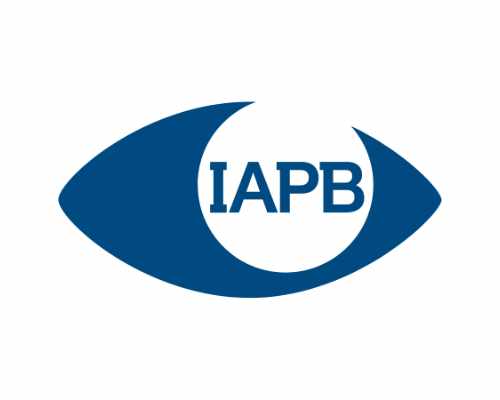
Around November each year, IAPB surveys its members using a specially adapted version of the Global Health 50/50 survey. If you are an organisation that is new to integrating gender equity internally (either programmatically or organisationally or both) as a starting point, you might like to do this survey for your organisation. It will identify strengths and gaps and let you know where a good place to start could be.
Results of the 2020 Gender Equity survey (released in 2021)
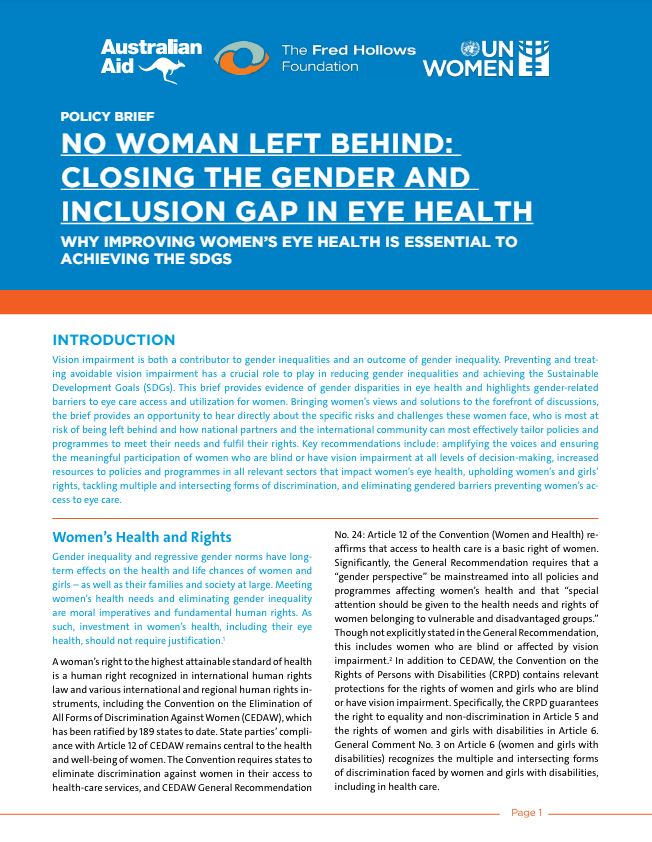
This policy brief from the Fred Hollows Foundation and UN Women provides evidence of gender disparities in eye health and highlights gender-related barriers to eye care access and utilization for women.
The brief maps out a number of forward-looking recommendations to countries, including actions to amplify the voices and ensure the meaningful participation of women who are blind or have vision impairment at all levels of decision-making, increase resources to policies and programmes in all relevant sectors that impact women’s eye health, uphold women’s and girls’ rights, tackle multiple and intersecting forms of discrimination, and eliminate gendered barriers preventing women’s access to eye care.
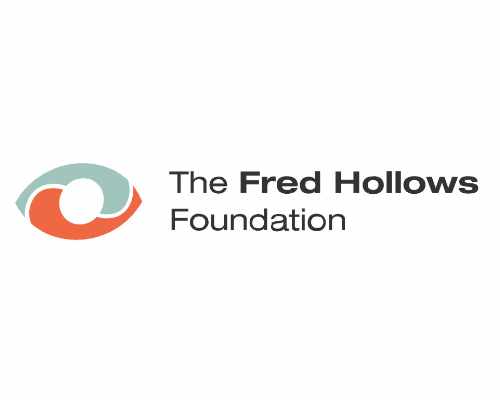
At The Fred Hollows Foundation, Gender Equity is included within our wider approach to Equity and Inclusion organisationally.
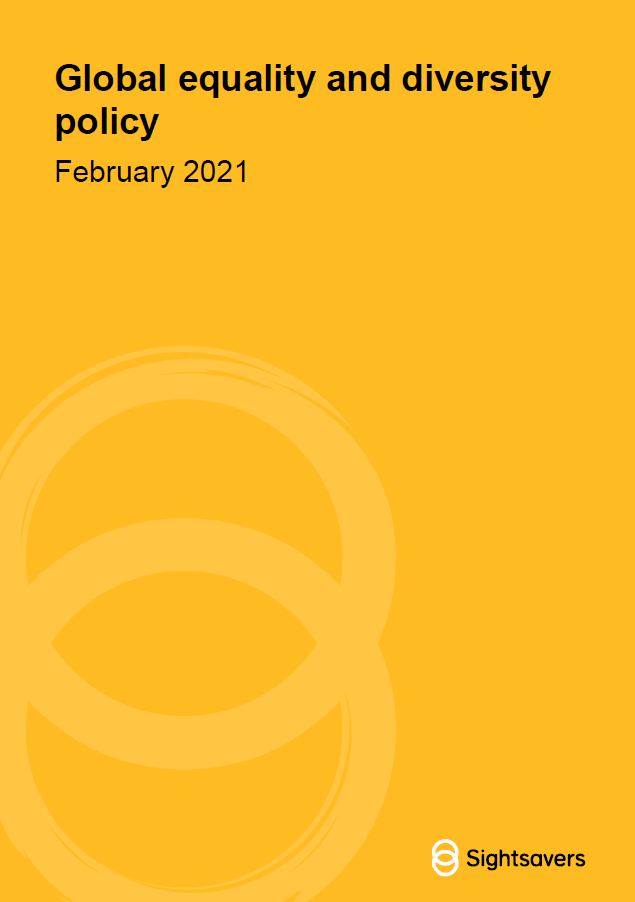
This policy is designed to help implement the commitment of Sightsavers to diversity. Sightsavers operates in many different parts of the world each with its own unique cultural identity and organisationally so is keen to maximise the benefits of this rich resource.
Click here to read Sightsavers Global equality and diversity policy
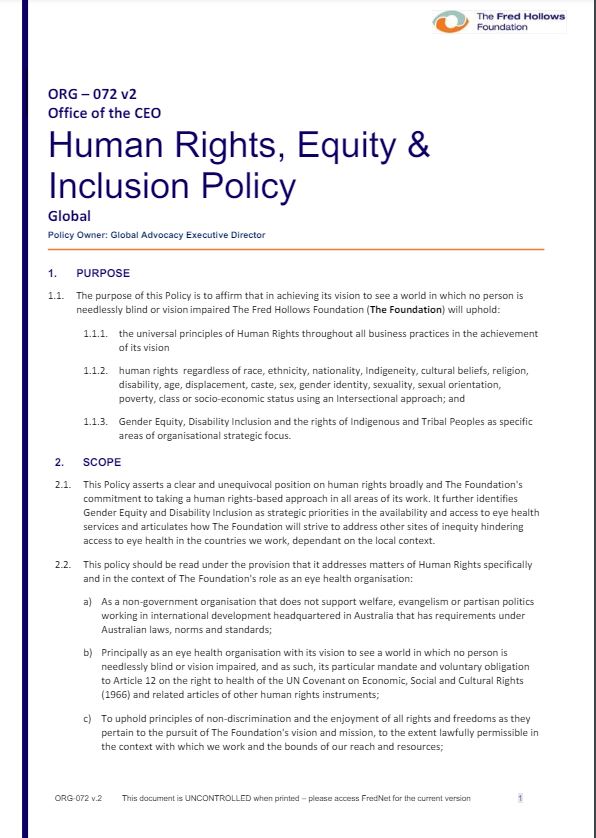
The purpose of this policy is to affirm that in achieving its vision to see a world in which no person is needlessly blind or vision impaired The Fred Hollows Foundation (The Foundation) will uphold: a) the universal principles of Human Rights throughout all business practices in the achievement of its vision; b) human rights regardless of race, ethnicity, nationality, Indigeneity, cultural beliefs, religion, disability, age, displacement, caste, sex, gender identity, sexuality, sexual orientation, poverty, class or socio-economic status using an Intersectional approach; and c) Gender Equity, Disability Inclusion and the rights of Indigenous and Tribal Peoples as specific areas of organisational strategic focus.
Click here to read the Fred Hollows Foundation Human Rights, Equity and Inclusion Policy

OneSight’s diversity initiatives are applicable—but not limited—to their practices and policies on recruitment and selection; compensation and benefits; professional development and training; promotions; transfers; social and recreational programs; layoffs; terminations; and the ongoing development of a work environment built on the premise of gender and diversity equity.
Click here to read OneSight Diversity Equity & Inclusion policy
With thanks to The Bill and Melinda Gates Gender Equality Toolbox, the Gender Equality Lexicon includes a concise set of clearly defined gender concepts. Such definitions support sector specialists who are integrating gender in their work and gender specialists who are supporting capacity building and managing investments for gender equality.
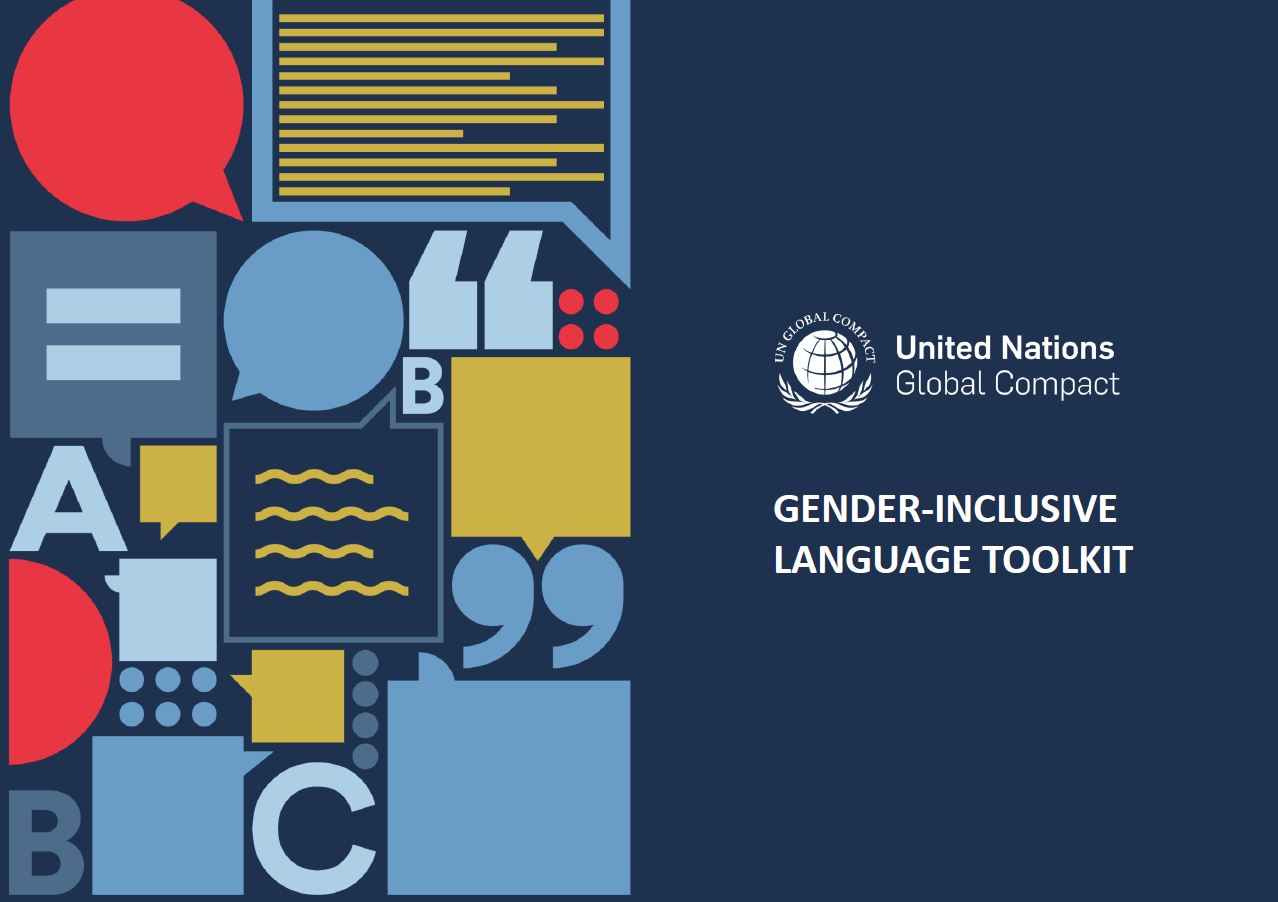
Language creates a mindset, which fosters a culture. Using gender-inclusive language does not mean that individuals are ‘de-gendered’.
The aim of the UN Compact Gender-Inclusive Language Toolkit is to ensure that no individual, irrespective of gender orientation and identity, feels excluded by words that are gender-specific or terms and phrases that are socio-culturally associated with a specific gender.
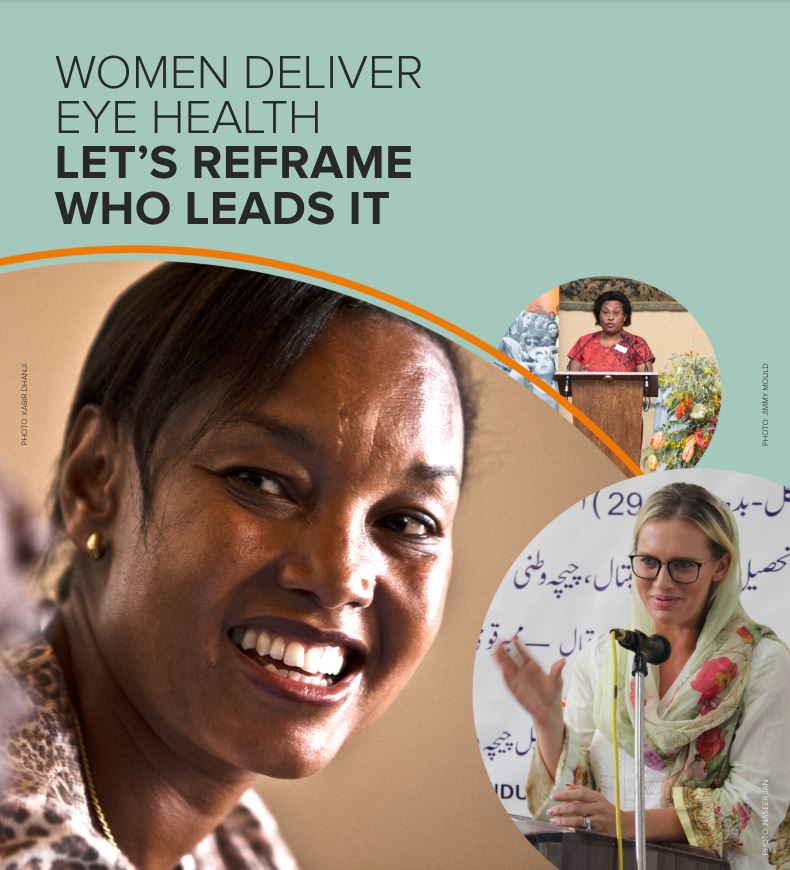
This project has explored and tested this hypothesis held by The Fred Hollows Foundation (The Foundation) around the potential of parity for women in leadership positions and what this would unlock for eye health services and outcomes.
It draws on some academic viewpoints to establish a supporting evidence base, but it is not an academic review. It is an attempt to draw out some key lessons and experiences from other sectors and organisations. It is an invitation to think about how The Foundation and the wider eye health sector might respond to this opportunity.
Access Women deliver eye health – Let’s reframe who leads it now.
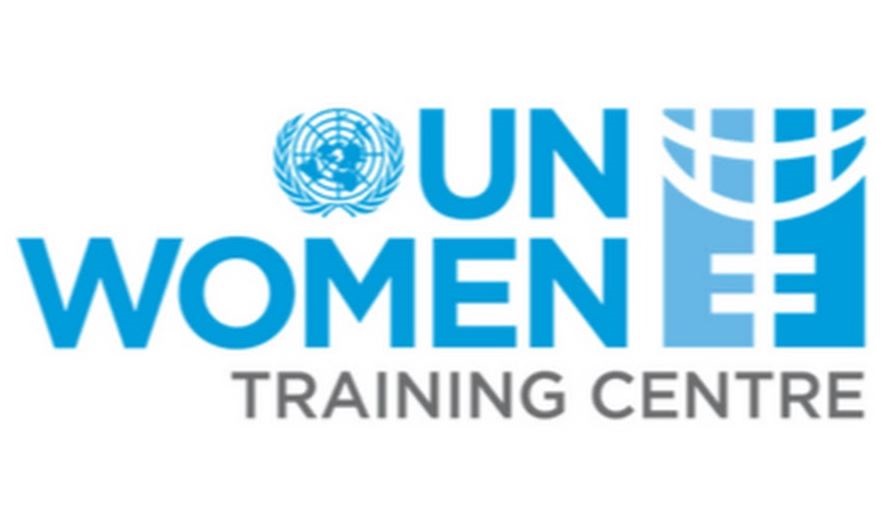
UN Women offer several free online courses to support gender training and capacity development issues.
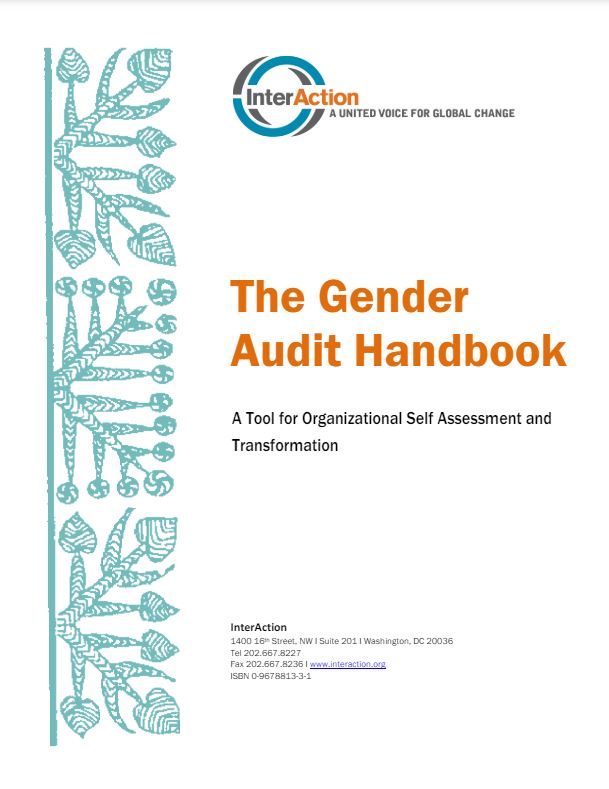
This Gender Audit Handbook is intended to help you conduct a gender audit-organizational transformation process in your organisation.
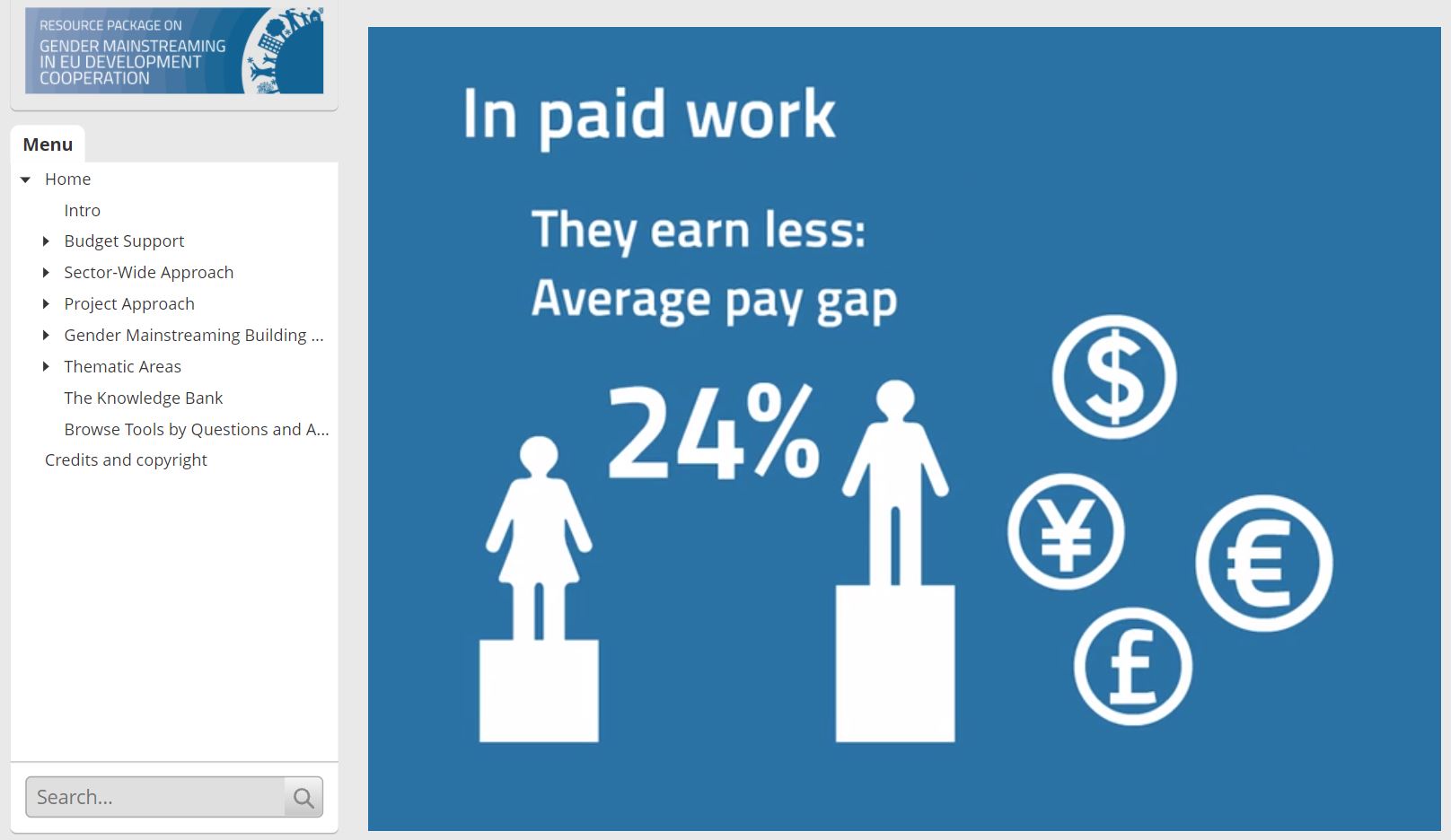
Online resource from EU Gender on Gender Mainstreaming in EU Development Cooperation

In 2021 and 2022, Light for the World implemented its first gender-focused eye health project called “Equitable, sustainable eye care for all!”. During project implementation, Light for the World and its partners in Burkina Faso, Ethiopia and Mozambique tested various approaches, strategies and activities to enhance gender equality in eye care.
The lessons learned from awareness raising and service delivery are, among others: partnering with community-based organisations, developing and sharing gender-sensitive Information and communication materials to promote eye health, ensuring the engagement of men for gender equality and understanding and accommodating the schedules and priorities of potential patients.